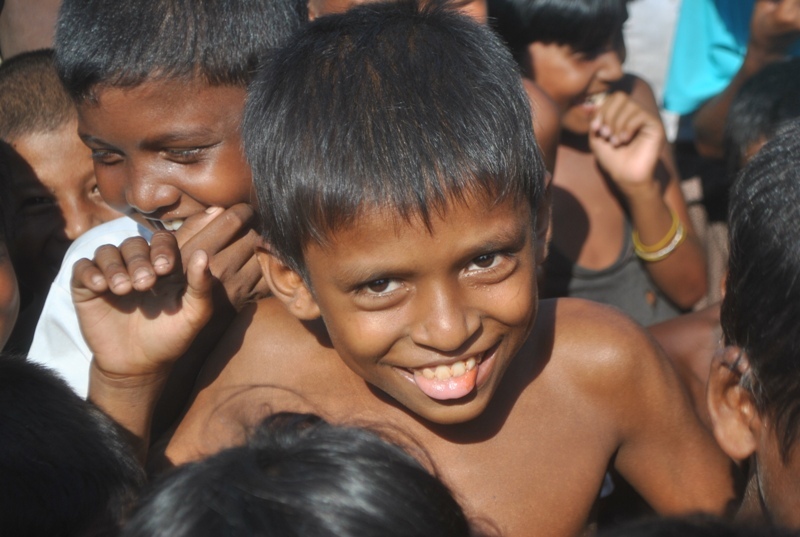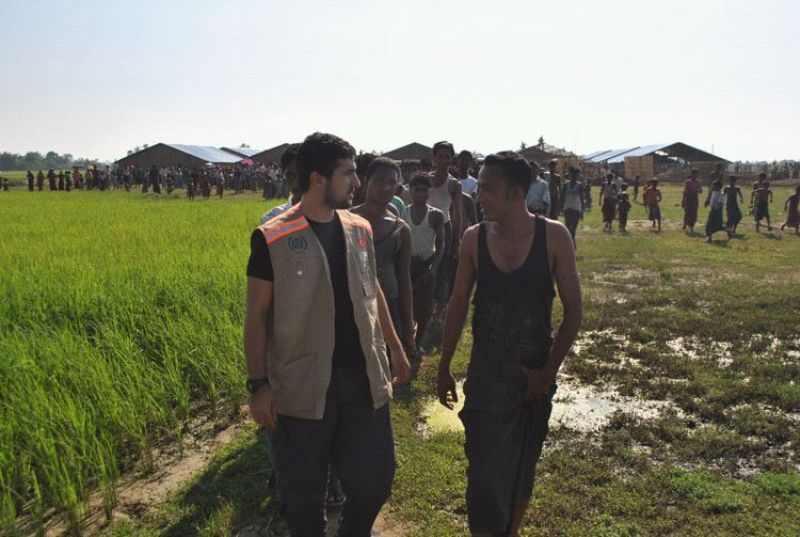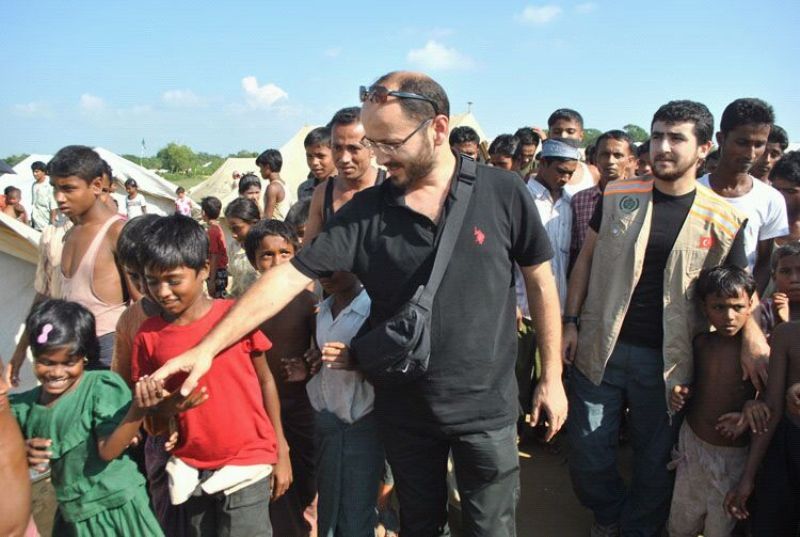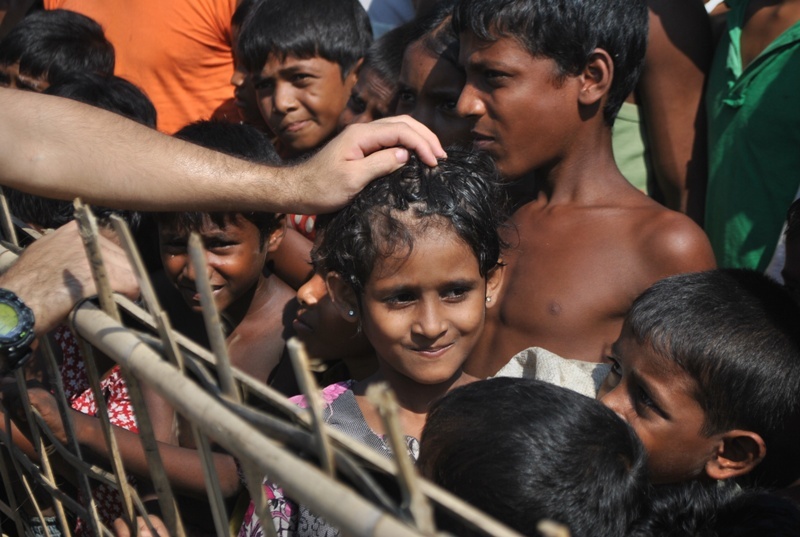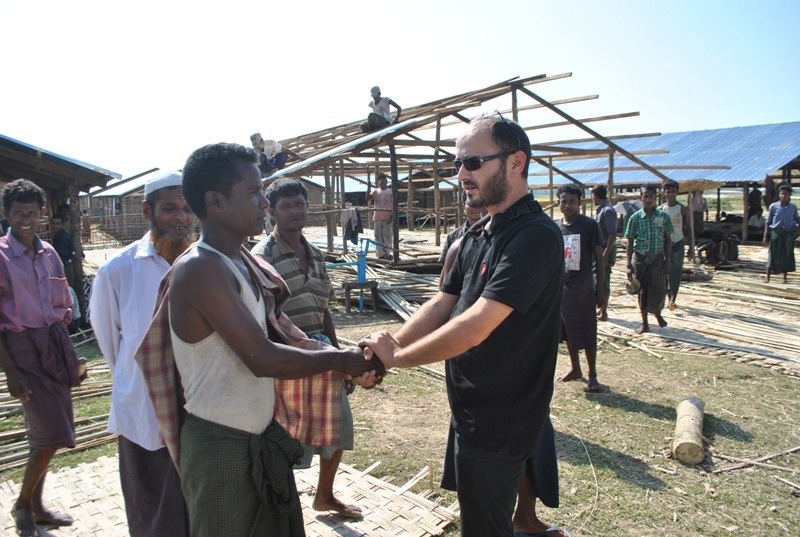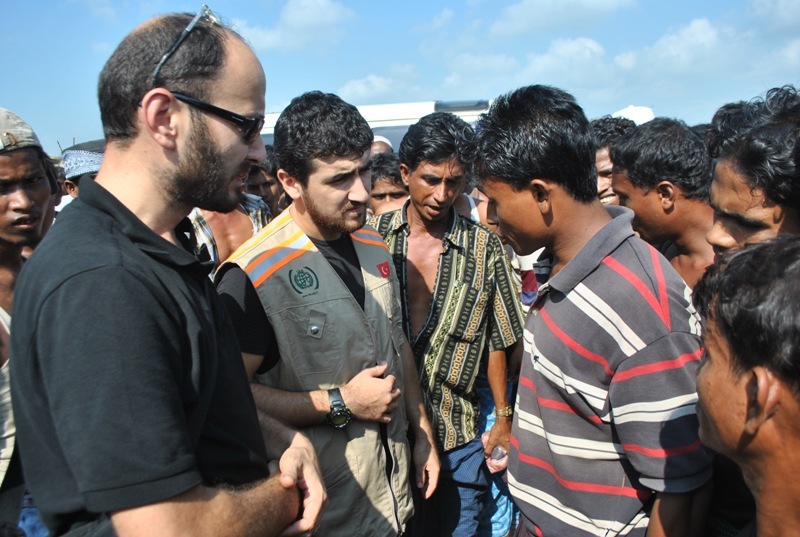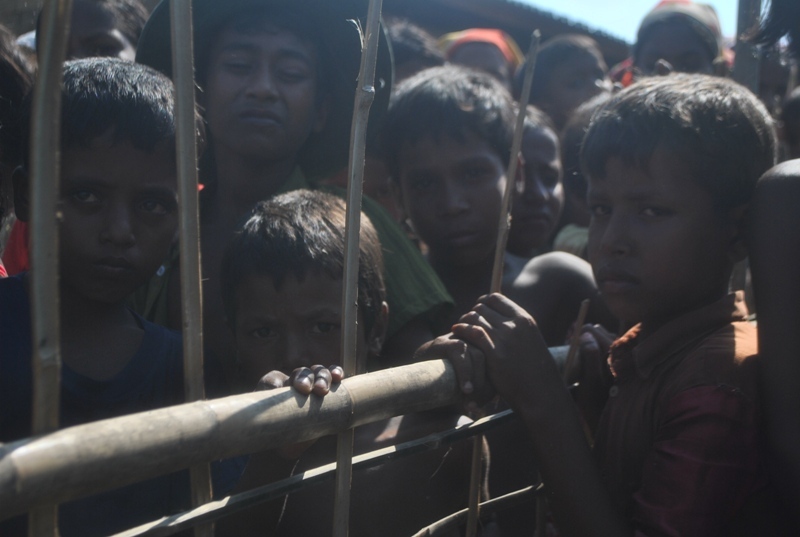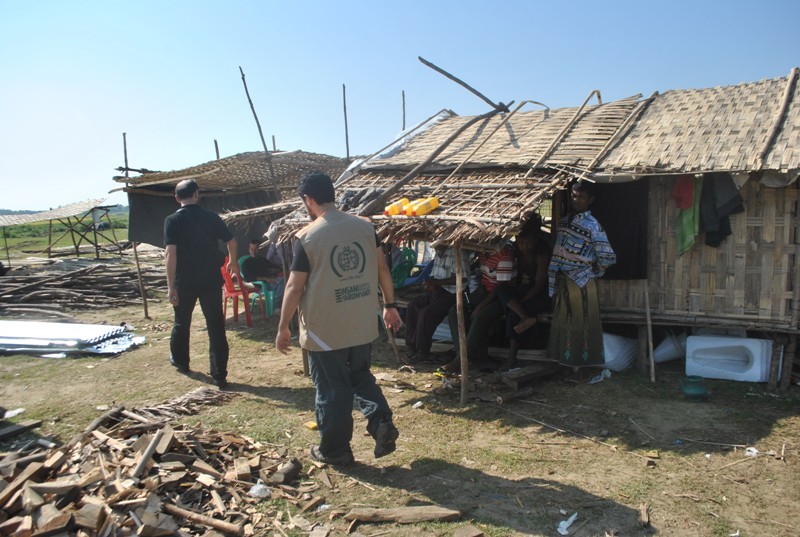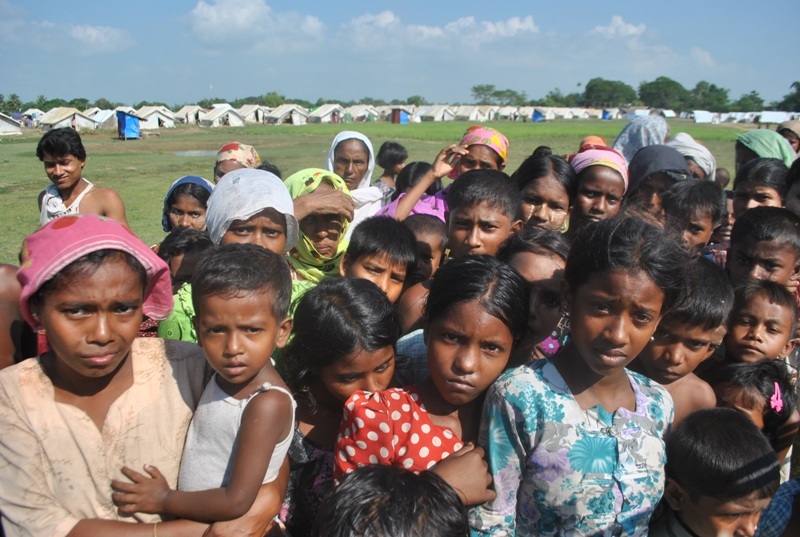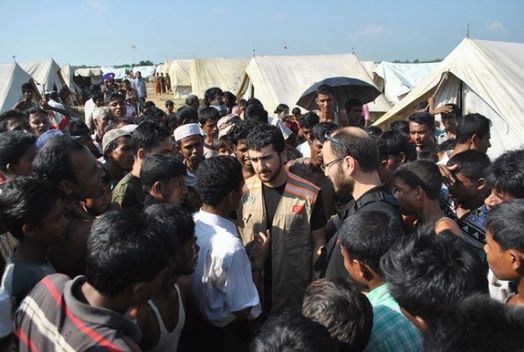
IHH has made yet another first. Carrying out relief efforts in Arakan for 17 years, IHH has been the first Turkish civil society organization which was able to enter Myanmar’s Arakan region since the incidents which erupted on June 3.
An IHH team, which is currently in Arakan, is organizing relief efforts in the places where Muslims live. The IHH team which managed to enter Arakan is led by RecepGüzel, an IHH official who coordinates emergency relief efforts. Being in Arakan for 10 days, Güzel shared his impressions from the region and gave information about the latest developments in Arakan and the situation of Arakanese Muslims.
Underlining the hardships Arakanese people have been going through in the aftermath of events in June, IHH Emergency Aid Coordinator RecepGüzel recounted his observations and findings:
There is an ongoing life struggle
We arrived on 4 October in the region where radical Buddhists living in Rakhine region perform violence against Muslims and carry on their massacre. We reached Myanmar’s capital city of Yangon first. We learned that Yangon was the capital city of Burma until 4-5 years ago. Nay Pyi Taw was made the capital city in a single night due to suggestion from psychics who have a significant influence on the junta regime. Sittwe is the capital of Arakan province. According to what we learned, there were 150,000 Muslims living in this city. Now, there are Muslims only in one neighborhood in the city center. Tens of thousands of Muslims fled to places, which we can call as camps, 8-10 kilometers away from the city center. Some of them live in shanty houses with 20 families while others try to lead their lives in tents.
Arakan has turned into an open prison
There are 17 cities in Arakan. No Muslims were left in TaungKoke and also in Ann and Goa after 10 Muslims were massacred by radical Buddhists in TaungKoke on 3 June. Although 95 percent of the population in Buthidong and Maungdaw is Muslim, hardline Buddhists have turned these two cities into an open prison for Muslims. The people in these cities experience a shortage of food as they are banned to leave their homes. Although the state welcomes aid proposals from international relief organizations, they demand to be given the control over all in-kind and cash assistance deliveries. Muslims in the region say that majority of the relief delivered by the Myanmar state goes to Buddhists and even 20 percent of the aid, provided by international relief organizations, is not delivered to Muslims. However, aid agencies such as IHH that deliver assistance through its own staff have no problems of this sort.
Real source of fear and violence
Since the Muslims living in this region, in the north, suffer from food shortage, there are serious health problems particularly among children. In fact, Buddhist people living in Yangon do not like the radical Buddhists living in this region and they label them as “wild.” There are more than 500,000 Buddhist monks in Burma where there are 500,000 soldiers. The population of Buddhist monks also poses a threat for the Myanmar administration. Monks’ remarks saying,” If pressure is not imposed on Muslims, our end will be like that of Malaysia and Indonesia and we will disappear after a while,” have been the source of fears that led to violence. There are so many privileges granted to the monks in Burma where the most number of Buddhist monks live that they, who see themselves as the “sons of Buddha” not only make Muslims but also Buddhist people suffer.
In order to eliminate pressure and violence against Muslims in the region, it is very urgent for the international community to increase pressure on Myanmar administration and civil society and relief organizations to enter the region as soon as possible. The villages and towns which were burned down should be reconstructed. There are efforts to demolish all the places belonging to the Muslims in the city center. What the administration and Buddhists want is to ensure that Muslims do not come to the region again and they live in camps which will be established outside the cities.
What does the IHH aim for?
As IHH, we believe that humanitarian relief efforts to be carried out by civil society organizations in the region will positively contribute to the development of the region in the long-run. Burma should be opened to world through the civil society institutions and relief organizations. Otherwise, tyranny and massacres in the region will continue. The only thing needed is to ensure that the region is opened to civil society institutions.
A total of 75.000 Arakanese people live in villages and camps where Muslims who were forced to leave Sittwe have taken refuge. In places which resemble to a hangar, mass living areas have been formed where 10-15 families live together. Many families are living in tents. There are a total of 11 water ejectors, eight toilets and eight bathrooms. They are very unhygienic and insufficient in number. Although there are mobile clinics in the region, locals told us that malaria and other infectious diseases are very widespread in the region. Last month, 11 children lost their lives due to these diseases and lack of a treatment. We learned that the United Nations provides food to the region. There are plans to allow these people to stay for one year in these places. Arakanese Muslims whom we came across while we were going to this camp seem as if they lead normal lives in their villages. The first thing which attracted my attention is the quality in the living standards of the Buddhists in Sittwe. The houses, workplaces and bazaars are more orderly and neat. Muslim villages and neighborhoods remind one of the camps in Bangladesh. The state policy of isolation and denial of Muslims is noticeable everywhere. Muslim people were left ignorant. This ignorance which is seen in the clothing and living circumstances clearly reveals the difference between the two communities. Buddhist people think that Muslims, who consume too much and who rapidly grow in number, have never belonged to these lands. None of the Buddhist salesman sells you anything when they learn that it will go to Muslims even if you offer more money. There is an animosity between the two communities, which is unlikely to disappear in years.
Life in shanty houses and unhygienic circumstances: Muslim people whose homes where they lived for years, workplaces and schools were burned down and demolished, had to move to predominantly Muslim regions in order to save their lives. Although some of them have taken refuge in the homes of other Muslims, who opened their doors to them, majority of them live in tents or shanty homes where 20 families have to live together.
Curfew: They have no access to many of their basic needs. Mostly importantly, they are in need of food and accommodation. Health problems get more widespread every day. Although there is no burned building in regions where the number of Muslims is higher than the Buddhist population, Muslims there have even no access to food due to a curfew imposed by the junta administration.
Delivery of basic needs: As IHH, our priority concerning the needs of Muslims in Arakan is to meet the basic needs of these people who are subjected to pressure and violence.
Continuous assistance and housing projects: We want to make the region livable again through permanent projects. As IHH, we aim to take permanent relief and services to the inner parts of Arakan. We aim to provide extensive relief to Arakanese people who live in very poor circumstances and meet their needs for food, accommodation, health services etc. We would like to take food relief in particular to prevent diseases caused by malnutrition. Later, our goal will be to work on long-term projects and take the necessary steps that will help development of the region. In addition to constructing hospitals, we would like to reconstruct villages and neighborhoods which had been ravaged. Our efforts will help the people of the region, whose contact with the world was cut for years, to get to know the new world.
Sensitivity of Islamic NGOs should increase: We want the Islamic non-governmental organizations (NGOs) and Muslims to show more interest in Arakan. People in the region need this very much. In addition, we would like to help the region’s Muslims meet with Muslim people from different languages and colors. Not only Muslims but also Buddhists need this.
Please click to have a look at IHH’s report on Arakan which includes detailed information about the region.
Click for Online Donation
Click for Bank Account Numbers
